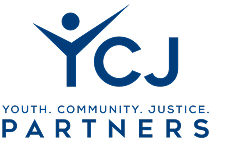PSYCHOLOGICAL EVALUATIONS
TRANSFER/WAIVER TO ADULT COURT
Transfer/Waiver to Adult Court Evaluations
In California, a transfer hearing is a juvenile court proceeding where a judge decides whether a minor should be charged as a juvenile or adult. Being transferred to adult court carries lifelong consequences. For instance:
- Adult court may ignore environmental factors that can affect youth behavior such as community disinvestment, poverty, and childhood trauma
- If convicted in adult court, youth could receive extensive sentences
in adult prisons where they would be the youngest and most vulnerable members of the prison population - In adult prisons, youth may not receive programming and services targeting their educational, mental, physical, and social development
- Black and Brown youth “bear the brunt of the justice system at every decision-making point,” including transfer hearings.
- Youth of color are more likely to be tried as adults compared to white youth, even when charged with similar crimes.
The decision to waive a youth to adult court is a serious one, guided by specific criteria in the California Welfare and Institutions Code (707A).
In 2015, 416 youth were sentenced in adult court in California, with nearly 90% of these youth being Black or Brown.
Why Dr. Gerchow?
Caliber. Compassion. Credibility.

Dr. Gerchow is a licensed psychologist (PSY 29762) and credentialed school psychologist with more than a decade of experience working in juvenile detention settings in the San Francisco Bay Area, first in Contra Costa County as clinician and team lead, and then in Alameda County as Director of Juvenile Justice Health Services. She has facilitated over 4,000 individual psychotherapy sessions and more than 300 screenings and assessments of youth in custody.
She is an expert in behavioral health interventions offered in juvenile justice settings, authoring an evaluation of two of the most utilized evidence-based practice curriculums in the field, Aggression Replacement Training (ART) and Thinking for Change (T4C). With her clinical and administrative background, Dr. Gerchow can speak to adolescent development, traumatology, and juvenile justice system policies and interventions.
Dr. Gerchow prepares reports in response to 707A criteria, including the minor’s “criminal sophistication” and amenability to treatment. Dr. Gerchow considers psycholegal factors including:
The age and maturity of the youth
Cognitive capacities and any mental illness
Nature and circumstancesof the offense
Role of the youth in the offense, prior offense history, and degree of criminal involvement or “sophistication”
Responses to previous interventions and fidelity of those interventions as offered
Availability of services through the juvenile justice system
Amenability of the youth to rehabilitation as a juvenile
The timeframe available for rehabilitative efforts in the juvenile justice system
Dr. Gerchow’s Approach

Dr. Gerchow recognizes mental health conditions and “psychopathology” (harmful dysfunction) are the result of a complex interaction between biological, psychological, and sociocultural factors, necessitating careful clinical consideration in the context of transfer evaluations. She chooses test batteries specifically designed to collect detailed mental health information about a young person, including their developmental history, life experiences, and their thoughts and feelings about their circumstances and future.
Dr. Gerchow employs a range of assessment tools, such as test of cognitive functioning, achievement, and broader mental health diagnostic evaluations including structured interviews. She also uses strength based measures and gathers insights from multiple sources across settings to thoroughly understand the environments in which youth thrive or face challenges.
Dr. Gerchow completed rigorous assessment training at UC Berkeley. She also has extensive clinical experience in the juvenile justice system providing direct services to youth and families including via Trauma-Focused Cognitive Behavioral Therapy (TF-CBT), Dialectical Behavioral Therapy (DBT), and full fidelity Functional Family Therapy (FFT). Her combination of assessment and clinical experience is the foundation for valid and reliable evaluation.
Ready to get started?
Dr. Gerchow completed rigorous assessment training at UC Berkeley. She also has extensive clinical experience in the juvenile justice system providing direct services to youth and families including via Trauma-Focused Cognitive Behavioral Therapy (TF-CBT), Dialectical Behavioral Therapy (DBT), and full fidelity Functional Family Therapy (FFT). Her combination of assessment and clinical experience is the foundation for valid and reliable evaluation.
Ready to get started?
Treatment Amenability
To assess treatment amenability, Dr. Gerchow may use the risk-need-responsivity (RNR) model. RNR is based on three principles:
Principle 1
The risk principle asserts that criminal behavior can be reliably predicted and that the level of treatment should be matched to the minor’s risk of re-offending.
Principle 2
The need principle outlines the importance of criminogenic needs and targets them in treatment.
Principle 3
The responsivity principle describes how the treatment should be provided.
Dr. Gerchow is committed to treating each young person with professionalism and compassion, aiming to provide comprehensive evaluations that assist the court in making informed and equitable decisions.
TESTIMONIALS
Christine has the creative mind, methodological rigor and unstinting work discipline of the best Berkeley trained human scientists. She would be natural for top academic or public policy positions (where her skills and engaging personality are badly needed). Yet it is her quite unusual capacity for empathetic understanding of complex relationships…
Lance Robbins Professor of Criminal Justice Law UC Berkeley (Boalt Hall)
Christine is an expert in trauma informed care and uses her skills and thoughtfulness to approach our most traumatized youth. While others have given up on these youth, Christine works out of the box to empower youth to heal from the trauma they have experienced and sometimes inflicted on others. I’m always inspired by her perseverance and passion.
Nurse Practitioner, Contra Costa County


